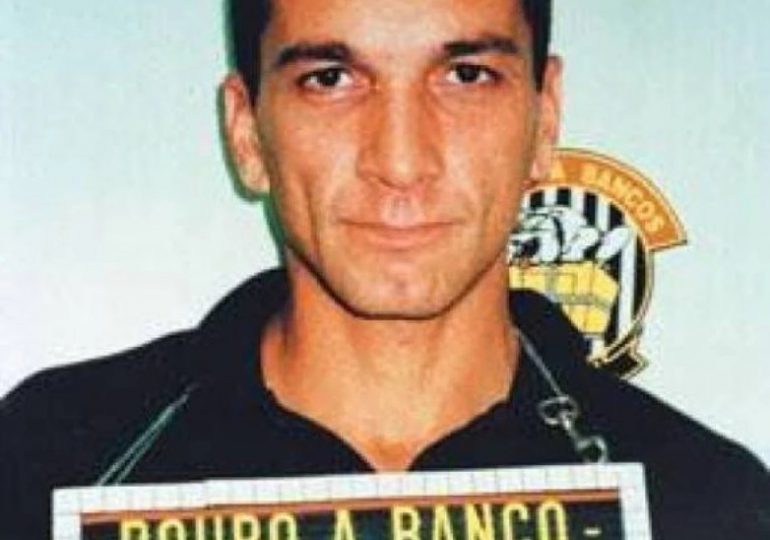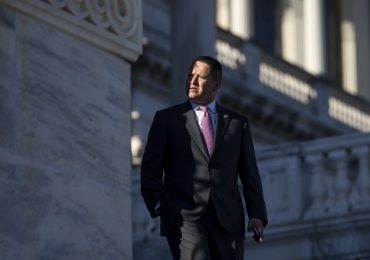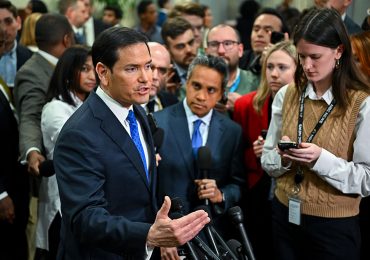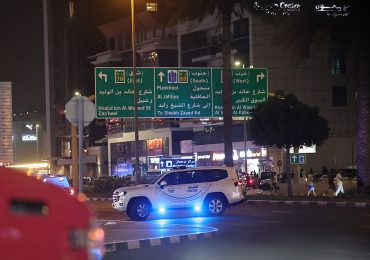A BRUTAL gang lord serving 343 years behind bars is still leading his group of thuggish followers despite his love of reading philosophy in jail.
Marco Camacho, 55, has been dubbed a “playboy” by his fellow gang members after he masterminded South America’s most powerful and ruthless criminal group – the PCC – into flooding Europe with drugs.
Marco Camacho is the leader of South America’s most ruthless gang the PCC
AFPCamacho is serving a 343 prison sentence for his role in the gang despite his love for philosophy and reading books[/caption]
AFPThe PCC are known as a vicious group believed to be behind murders, bombings and the takeover of the cocaine trading market in South America and across Europe[/caption]
Camacho has served just 28 years of his massive prison sentence so far and has spent the last five years inside a maximum security cell for his role in creating terror with the PCC.
According to reports, the fearless kingpin has spent his time locked away getting through as many books as he can in his prison’s library.
He’s thought to have read thousands of books and become obsessed with classic French and Italian literature from Voltaire to Dante.
Despite his quiet, mundane life inside the prison walls, Camacho has kept up his chilling role as the evil leader of his cartel organisation.
The former bank robber has kept a close eye on his 100,000 members outside of jails across the world as his crew continue to expand and infiltrate new places.
His international drug-trafficking cartel is made up of 40,000 “baptised” members, known as “brothers”, and another 60,000 “contractors” who are used to deal with Camacho’s every request.
Camacho took over the PCC when he was in prison after ordering the murders of his two main rivals in 2002.
Despite his already whopping sentence, the man is also accused of murdering a magistrate.
Staying in a cell in Brasilia, Camacho is still allowed frequent contact with the outside world including weekly visits with family and lawyers.
He once reportedly told a guard in prison: “It is you who are afraid of dying, not me.
“As a matter of fact, here in jail you cannot come in and kill me but I can order them to kill you out there.”
Starting as a prisoner’s rights group, the PCC or the Primer Comando da Capital has gone on to become an incredibly powerful criminal outfit that is thought to control tens of millions of people through their shady business methods.
Their wicked reach stretches all around Latin America and across the Atlantic to Italy and Albania as well as Nigeria where they have control over a neighbourhood in Lagos.
They are also believed to be the sole leader responsible for cocaine coming into Europe from Brazil.
Laurent Laniel of the Lisbon-based European Monitoring Centre for Drugs and Drug Addiction recently said: “It is always difficult to know who handles what percentage of the trade, but the PCC are significant players, they have a growing presence in Europe.”
Laniel and other top experts have called the rise in international trafficking as a worrying development over the last few years.
The business is now seen as a free-for-all for heavily-armed gangs with wealthy businessmen at the helm to wreck havoc on people’s lives through their army of criminal supporters.
Laniel continued: “Cocaine is crazy at the moment, it’s everywhere, not just coming in the containers but on fishing boats, transits via Africa, submarines, drones — it’s just mad, to be honest.”
As a result of the gang mentality, more cocaine has started to come into Europe than ever before with the Belgian port of Antwerp intercepting 116 tonnes last year alone.
A record haul and worryingly 18 per cent more than in 2022.
The drug market across the Atlantic is thought to be valued at around £10billion and has meant the industry has seen a sharp rise in fighting over the territory.
Battlefields have been built up near valuable trade locations as frequent car bombings, horror assassinations and fatal gunfights have all started to become more regular occurrences.
Benjamin Lessing, a political scientist at the University of Chicago who specialises in criminal organisations said: “They seem to have muscled out the Colombians on the European route.”
Nanette van Schleven, head of Dutch customs told the Times: “If you want to smuggle cocaine through the harbour, you need inside information.”
Van Schleven also described just how the gangs operate saying they often find sneaky places to hide the drugs on the ships.
One of the most common finds is a mass amount cocaine hidden within fruit.
Police have also reported that they’ve been offered bribes as well as dock workers.
Van Schleven continued: “Customs officers, people who work at terminals, they are at great risk. We see more and more coercion and aggression to work with criminal organisations.
“Some do it for the money, most do it because they are forced into it.”
She spoke just 24-hours after Belgian police arrested 22 people – including three cops – in raids on 45 private homes and businesses in Brussels and Antwerp where money, cars and guns were seized.
A Brazilian state prosecutor, Lincoln Gakiya, has faced years of torment from the PCC and constantly fears for his life.
He feels he “can’t go anywhere in Latin America” now after a recent string of murders to high profile prosecutors from various countries.
The latest to die was Cesar Suarez, an Ecuadorean prosecutor who was shot dead in his car.
Paraguain Marcelo Pecci was also murdered by gunmen driving jet-skis as he was on his honeymoon on a private beach in Colombia.
Cops have suspected the PCC are involved in these killings but authorities have been unable to pin anything on them yet.
The PCC aren’t like the criminal gangs of the past such as those headed up by Pablo Escobar or Joaquin “El Chapo” Guzman.
They don’t value money and flash cars as a top priority but instead live a “monk-style life”.
They are considered a group who run on debates and group consensus and are often seen spreading around their income to help one another.
Gakiya said Camacho has “restructured the organisation so that power is distributed with people rotating around different posts”.
Drug profits have gone into creating a new bus service to and from the homes of those in the PCC and houses have been bought near prisons for the family members visiting the criminals.
The organisation is also known to buy Easter eggs for the children of those locked away.
They are also seen as having their own set of rules to live by including a personal criminal justice system.
Lessing said: “You could literally get a criminal record within a criminal organisation.”
The PCC are seen as South America’s most powerful and ruthless criminal group
Camacho has reportedly threatened police officers from his cell saying ‘I can order them to kill you out there.
AFPThe PCC started as a prison gang who quickly gained followers out of fear[/caption]
Leave a comment








